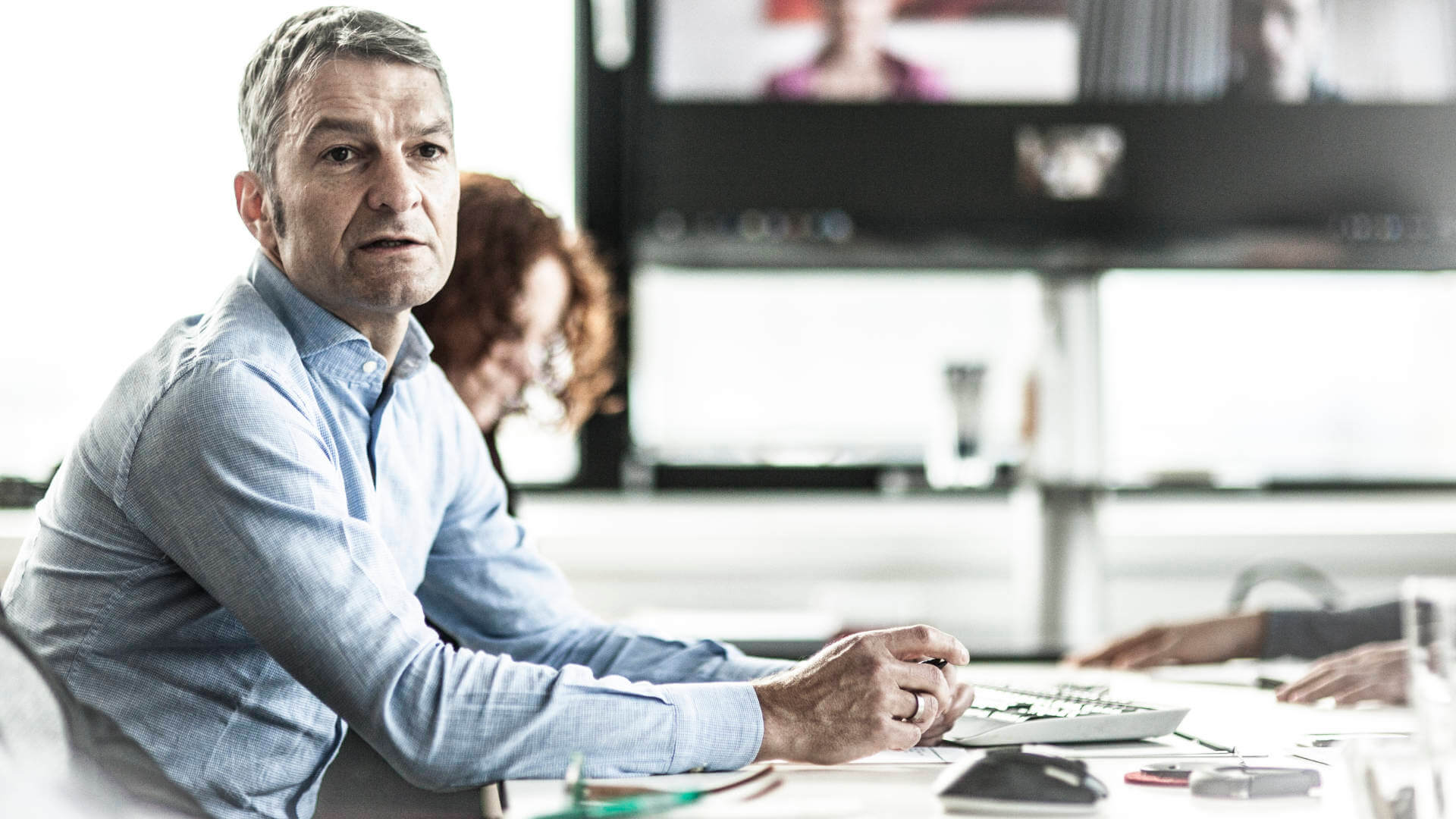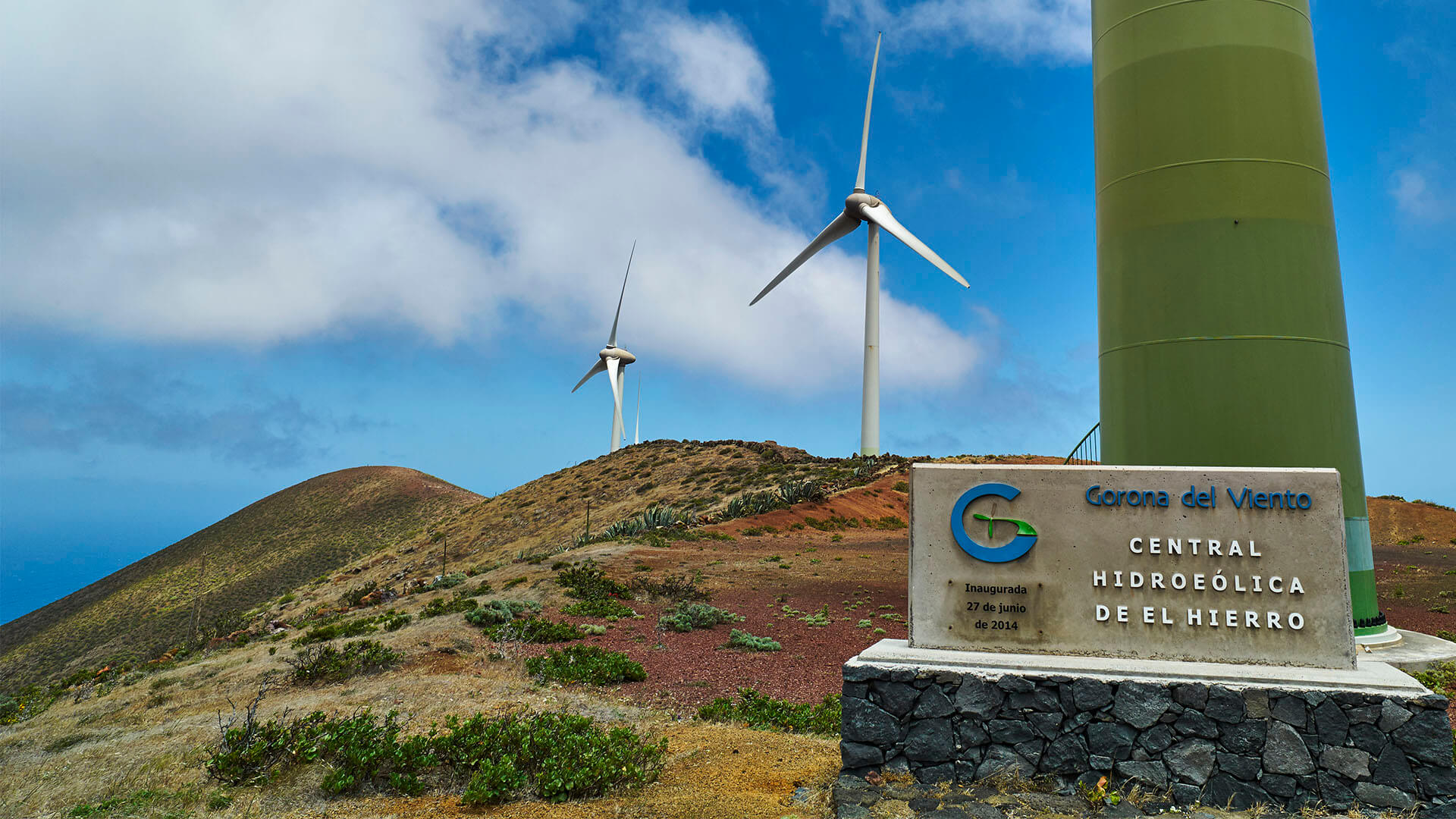COVID-19, remote working and beyond.
Together with Thomas Hasleder Stefan Komornyik is managing partner of HAKOM Solutions GmbH. The company has been developing time series technologies for the energy industry for almost 30 years and has earned a first-class reputation in the European market. We talk to Stefan, the CEO of the company, about COVID-19: What does the virus mean for HAKOM, will it have an impact on the product range and what could it mean for the energy transition?
Interview - entrepreneurial challenges through COVID-19.
Sofia Markart: Stefan, COVID-19 currently dominates all areas of media. When did it first become a topic for HAKOM?
Stefan: As a technology company, we are used to observing international markets closely. It was clear to us quite early on that something was coming. China is the workbench of the western world. The supply chains do not only consist of goods, computers and airplanes. To a large extent, it is people who breathe life into them and who travel between China and Europe, and they do so very intensively. That's why we already had the COVID topic on our radar at the E-World in Essen this February.
Sofia Markart: On radar, what does that mean in concrete terms?
Stefan: We discussed the situation internally and decided to pay even more attention to hygiene during the fair than usual. So to pay attention to the very simple things that are now also recommended. Keep a sufficient distance, wash your hands etc. In this context, the Asian forms of politeness, bowing instead of shaking hands and giving the person opposite sufficient space, appear to be a sensible alternative to Western patterns.
Sofia Markart: You think we should greet each other more like this in the future?
Stefan: Why not, that makes sense in general. By the way, every behavioral trainer also advises you to draw a virtual circle around your counterpart and not to invade this private area. This harms the atmosphere and creates stress. Maybe it's the 1.5 meters.
Sofia Markart: When did the virus then become a topic in the Vienna office?
Stefan: Again very early, actually already after the E-World. Our office is located directly next to Vienna's first-class underground network.. Of course, many employees come to work in a sensible way with the "Öffis", as it is called in Vienna. We then motivated these employees to work remote, which was well received.
Sofia Markart: And it was technically just that simple?
Stefan: Yeah, it was no problem. We have been using Office 365, MS Teams for meetings and other tools like Confluence, Jira, MS Dynamics or SharePoint for a long time. The possibility to work remotely is state of the art at HAKOM. In general Austria is very far in the field of remote working in the EU. Leading are Benelux and Finland. There about 14% of the employees work permanently remote. But then Austria already comes with 10%. All other EU countries average only 4%.
Sofia Markart: How can this be explained?
Stefan: I think it is primarily a cultural issue of how people are used to interact. Sure, the technical setup has to be right, but that's probably secondary. Spain, for example, has an excellently developed mobile data network compared to Germany and Austria. We can't go along with that. That makes sense. Spain is extremely large and sparsely populated. This is necessary in order not to abandon entire regions in the current climate. Nevertheless, only 4% of Spaniards work remote. Strange, isn't it? That can only be explained culturally. There is the need for the personal, and that is not a prejudice.
Sofia Markart: Speaking of the personal: Technically remote working is not an issue at HAKOM, but how do the employees handle it? How does the cooperation, the communication work?
Stefan: Two years ago, we restructured our organization after extensive analyses. Teams of 4 to 7 employees were formed, each with a team leader. This compact and goal-oriented organization is now the perfect structure for the current challenges. The teams also have strong personal cohesion, which we encourage. Working remote, when it is really lived, is a little more complicated than some people think from the outside.
Sofia Markart: Complicated in what respect?
Stefan: Well, we are a young company. Many of them have children running around while working remote. They don't understand why mum or dad suddenly has no time for them when he or she is at home. This has to be explained to children and is not so easy. Others feel left alone. Social life after work no longer exists. We have set up a humorous blog so as not to lose the personal level. This is important.
Sofia Markart: Let's get to the customer side. How does HAKOM deal with customer service in the COVID crisis?
Stefan: There are two areas to be distinguished, the content and the technical. In day-to-day business nothing has actually changed technically. For a long time now, most of the communication has been digital. Technical matters are handled via remote maintenance as standard, and a journal service outside working days is also available to our customers as usual. Availability is everything in the energy sector. What is exciting is the content, because the pandemic means that we are breaking new ground in some areas.
Sofia Markart: New territory with regard to forecasting models?
Stefan: Exactly, there has never been such a situation before. When entire industries come to a standstill, this leads to a massive slump in energy demand. This could already be observed during the financial crisis in 2009. However, compared to what is currently happening, it hardly affected the real economy at all. Forecasts of energy consumption are particularly complex at the moment because there is no historical training data. New factors also play a role. Political decisions suddenly influence energy demand from one day to the next. We approached our customer specifically on 13 March and addressed this particular issue. We immediately made our service departments fit for such business impact analyses in order to be a strong partner in the crisis.
Sofia Markart: To take the topic of energy consumption further: How could COVID influence the energy turnaround?
Stefan: I think the path is mapped out. Germany is following a remarkable and very courageous path in terms of energy system transformation. After all, when it was decided to turn away from nuclear energy, hard coal and lignite, these energy sources accounted for around 40% of primary energy consumption in Germany. The project could also be described as an energy revolution. Sooner or later, other countries will have to follow this path as well, due to the resources and because people are rethinking, priorities are shifting. In my opinion, the pandemic will accelerate this process. Microgrids, smart cities and similar issues will be pushed more. Also from the point of view of security of supply and the desire for decentralized structures, which is becoming audible everywhere. We are working intensively on these topics because they influence where we set the focus in R&D. If the energy industry is ready for new approaches, then we are also ready for them with our technology.
Sofia Markart: Sounds good, what would be a concrete example of this?
Stefan: Control energy, for example. Microgrids, green energy, all these issues will make it necessary for assets to combine into virtual power plants in order to keep the grid stable. In the summer, "BigBattery Lausitz" will go online, a battery power plant with 50 MW capacity. Lusatia, once considered the energy engine of the GDR because of its lignite deposits, is currently making a remarkable effort to switch from lignite to future technologies. The structural promotion measures are effective. Power plants such as the "BigBattery Lausitz" will play an important role in the future for the quality of the grid. We have just launched an R&D project on this topic that deals with the future topic of grid quality.
Sofia Markart: Talking about virtual power plants. More and more processes are shifted to the cloud. What does that mean for HAKOM?
Stefan: This is an interesting question with regard to our time series and forecasting technologies. We are currently seeing that Microsoft is making up a good portion of its crisis-related revenue losses through an exploding cloud business. Amazon's cloud, the AWS, is also massively fueled by COVID-19. The path leads into the cloud, that is predetermined. Closely related to this is the share economy, use and no longer own. This applies to music, cars or even software to the same extent. At the E-World in Essen this year we presented our "Hosted Lab" for the first time. We are ready for this trend.
Sofia Markart: Stefan, what does everyday life in the development department look like in times like these?
Stefan: Ambitious, as always. The world won't end. The most important thing in crises is to keep a cool head and not to neglect the operative business. Those who do it right will emerge stronger from crises. Our CTO Thomas has a structured R&D plan, a portfolio of current and future topics. These are being worked on intensively. In addition, there are new insights from the crisis. For our customers in the forecasting sector, we are currently working intensively on ways to improve forecasting models in volatile situations, such as this very crisis. This will also be interesting for other areas. The energy transition promotes volatility through wind and solar energy, microgrids, prosumers, etc. In any case, this will also become a topic outside of every crisis.
Sofia Markart: One more question about the business situation. How does it look like for HAKOM there?
Stefan: We are currently demonstrating to our customers that we are a reliable and efficient partner even in such a dramatic crisis, which is probably no exaggeration. We fulfil all contracts. At the same time, we are proactively addressing current problems. So we do not wait until someone knocks at our door. Together with the team leaders, we have preventively adjusted our capacity to 75%. The Austrian Federal Government has put together an excellent package here. The employees still receive around 80-90% of their salaries. Otherwise, we are steering through the crisis in a calm and transparent manner. Our rigid financial and liquidity management is keeping our backs free.
Sofia Markart: A question about sales. What will happen?
Stefan: Also an exciting question. We will have to re-evaluate many things based on the experiences we all have now. Interpersonal relationships are extremely important. We are not machines. The social factor plays a major role in being able to work together successfully. It is about trust, understanding each other, exchanging ideas and developing and moving things forward together. To do this, people must meet in real life and not just digitally. Nobody will deny that. The question will be to evaluate how often this has to happen and how much is useful. As is well known, many things are learned routines that at some point are no longer questioned. Now questions are being asked. That is not bad. Currently the dial-in code is the new flight ticket.
Sofia Markart: Final question, how do you and Thomas deal with the situation.
Stefan: Thomas works remote. His children are still small, so he is currently more challenged at this level as well. My daughters are already older. The youngest one should graduate from high school in the next few months. Nobody currently knows how all this will be organized. It will be exciting. So I can be in the office every day as normal, because time doesn't stand still there either. Unfortunately, informal contacts are currently lacking in our company. They play an important role in our company, the joint lunch, the conversation in the coffee kitchen. So that this doesn't get lost completely as almost everyone is working remote, Thomas and I have set up "open door", appointment blocks in which we can be reached by everyone. My weekends are quite close to the life before Corona. My wife and I are in the Waldviertel with or without children, do sports in the woods in front of the house, go for a walk with our dog. In crises it is important to maintain a certain routine in order not to be taken in by it.
Sofia Markart: A final sentence?
Stefan: Three short ones please: "Crisis is a productive state. You just have to take away the taste of disaster." Max Frisch wrote that.
Sofia Markart: A positive final movement with a dash of humor. Thanks for the interesting conversation!
Photo credits: © HAKOM Solutions GmbH




